Unravel
The Power and Politics of Textiles in Art
News — Jul 22, 2024
14 September 2024 – 5 January 2025
Few things are as present in our everyday lives as textiles. They cover and protect us, engage our senses, trigger our memories and represent our beliefs and tastes. Yet textiles remained underexamined in art history, while contemporary artists have rediscovered the powerful possibilities of textiles to tell their personal histories. In Unravel, the Stedelijk brings together 47 international contemporary artists, both renowned names like Louise Bourgeois, Tracey Emin and Sheila Hicks and many from younger generations from around the world.

The exhibition consists of approximately 100 works, 9 of which are from the Stedelijk collection, including recent acquisitions. Many of the international artists, like Jeffrey Gibson, who currently represents the US at the Venice Biennial, have not previously been shown in the Netherlands.
From intimate handmade pieces to large-scale sculptures: the colorful works in this group show are overwhelming and highlight impressive stories about power, resistance and survival, but also about resilience, love and hope. Artists with diverse, global perspectives share their personal histories, which are also current social and political stories.
The exhibition explores the role of textiles in art through six themes: ‘Subversive Stitch’, about, among other things, resistance to textiles as ‘women's work’, ‘Fabric of Everyday Life’, with personal stories and lived experiences, ‘Borderlands’, about physical and invisible borders, ‘Bearing Witness’, with textiles as social and sociopolitical commentary, ‘Wound and Repair’, textiles as a restorative and healing medium, and ‘Ancestral Threads’, about the lives and techniques of ancestors and alternative knowledge systems.
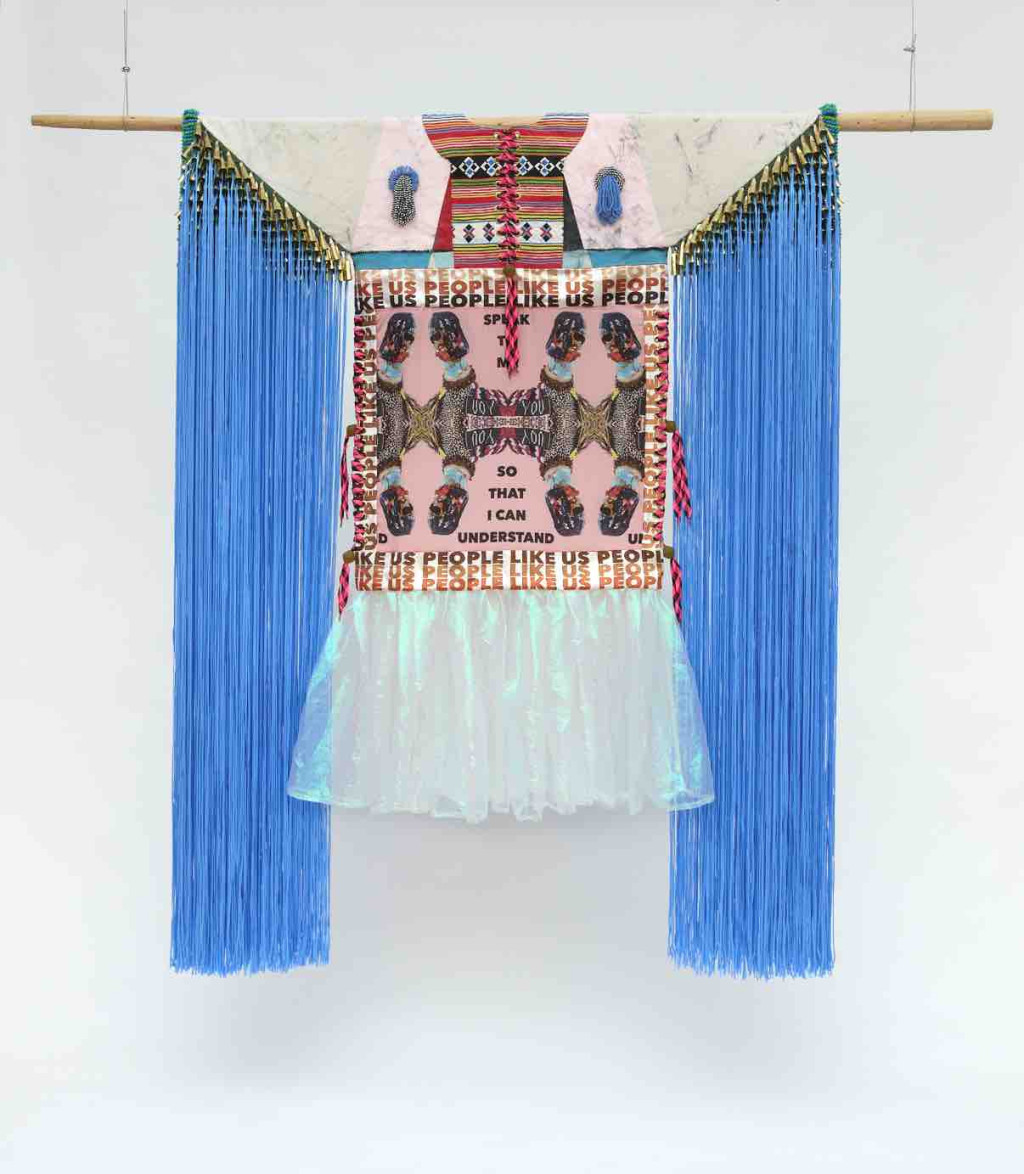
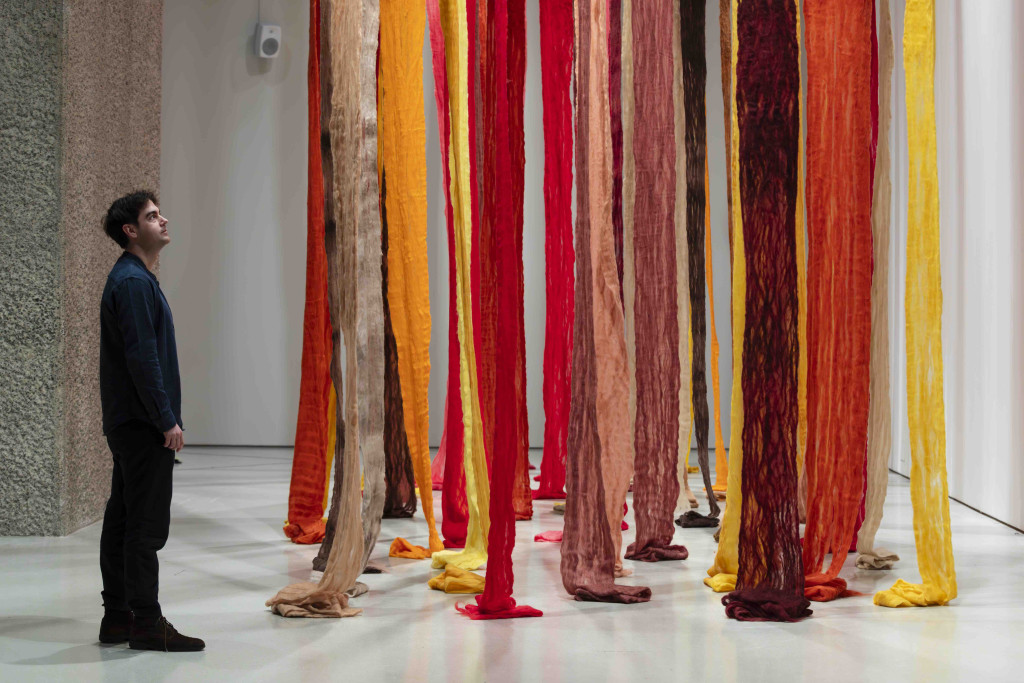
The exhibited works in Unravel are radical in both form and politics, and encompass a wide range of forms, scales, and techniques, drawing on historic methods of making as well as new and experimental processes.
Rein Wolfs, director of Stedelijk Museum Amsterdam: “The Stedelijk has a long history with textile art, it has been collected for the collection since 1930. One sees that from the 60s and 70s textiles become more sculptural and politically committed. At this moment, there is a revival, with many young makers using the medium to shape stories and with pioneers like Magdalena Abakanowicz being appreciated again. This exhibition shows that contemporary artists feel free to express themselves in every possible medium and that textiles add an extra dimension, both in terms of content and visual experience.”
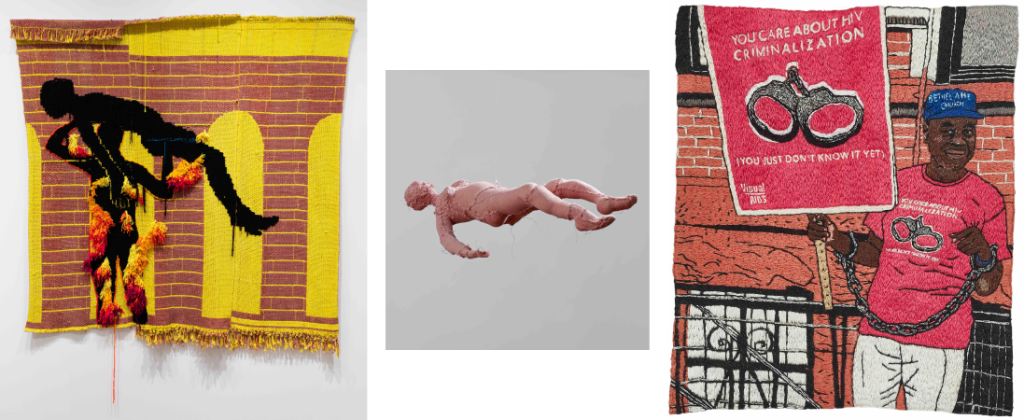
Artists featured in the exhibition include:
Pacita Abad, Magdalena Abakanowicz, Igshaan Adams, Ghada Amer, Arpilleristas, Mercedes Azpilicueta, Kevin Beasley, Sanford Biggers, Louise Bourgeois, Diedrick Brackens, Jagoda Buić, Margarita Cabrera, Feliciano Centurión, Judy Chicago, Myrlande Constant, Cian Dayrit, Tracey Emin, Gee’s Bend/Lorraine Pettway, Jeffrey Gibson, Antonio Jose Guzman en Iva Jankovic, Harmony Hammond, Sheila Hicks, Nicholas Hlobo, Yee I-Lann, Kimsooja, Acaye Kerunen, José Leonilson, Tau Lewis, Ibrahim Mahama, Teresa Margolles, Georgina Maxim, Małgorzata Mirga-Tas, Violeta Parra, Antonio Pichillá Quiacaín, Faith Ringgold, LJ Roberts, Zamthingla Ruivah, Hannah Ryggen, Tschabalala Self, Mounira Al Solh, Angela Su, Lenore Tawney, T. Vinoja, Cecilia Vicuña, Billie Zangewa, and Sarah Zapata.
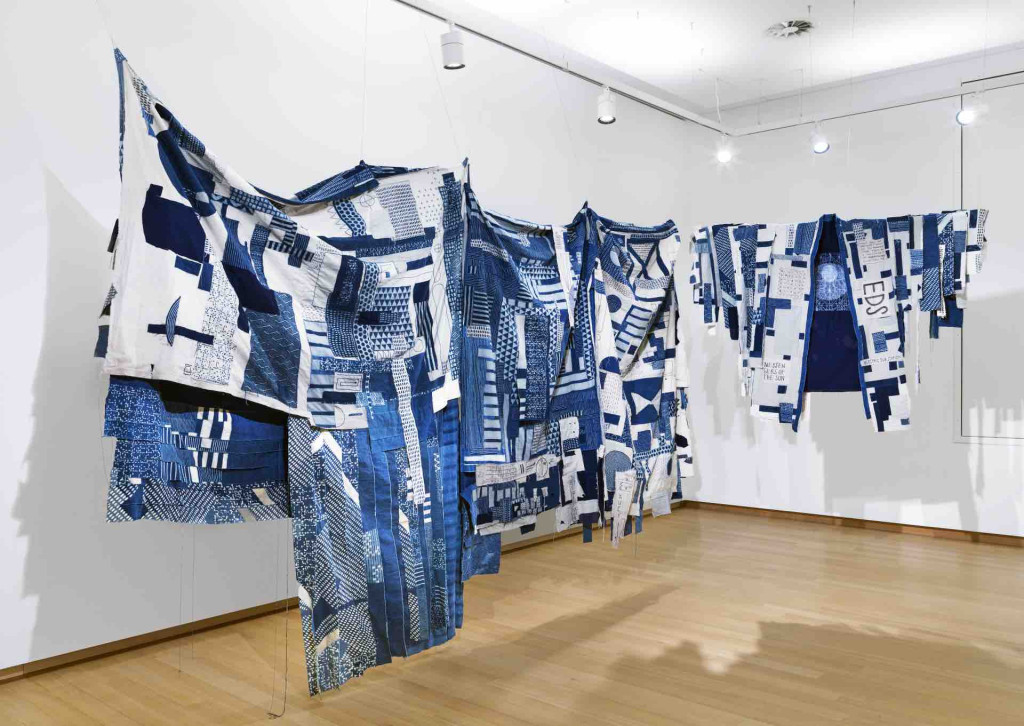
PUBLICATION
The exhibition is accompanied by a publication of the same name, which includes new essays by Julia Bryan-Wilson, Miguel A. Lopez and Denise Ferriera da Silva, and texts by Michelle Adler, Diego Chocano, Wells Fray-Smith, Lotte Johnson and Amanda Pinatih. (Publisher: Prestel Verlag, 320 pp, English, for sale in the Stedelijk Museum shop, €45)
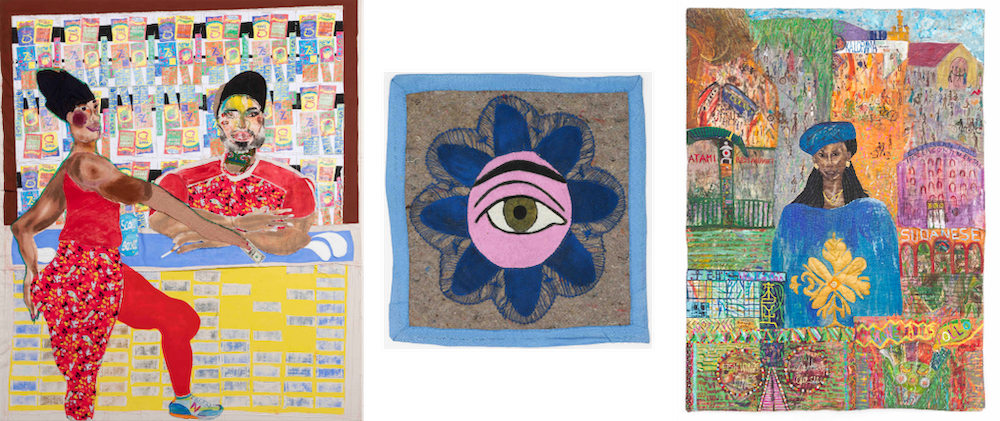
SYMPOSIUM
11 & 12 October 2024, Stedelijk Museum Amsterdam
The Unravel symposium, organized by the Stedelijk Museum and Christel Vesters/PAR &H Foundation, delves into two principal themes of the exhibition: ‘Borderlands’ and ‘Ancestral Threads’, offering a more profound exploration and innovative perspectives on these topics. The artists featured in the Borderlands section interrogate how borderlands can serve as sites of significant creativity, subvert the language and aesthetics of borders, and transcend them. Ancestral Threads centers on the reclamation of ancestral knowledge by artists from diverse backgrounds. By critiquing colonially imposed ways of being—including imposed borders, notions of identity, and the devaluation of certain types of knowledge—the symposium will evoke journeys through both space and time.
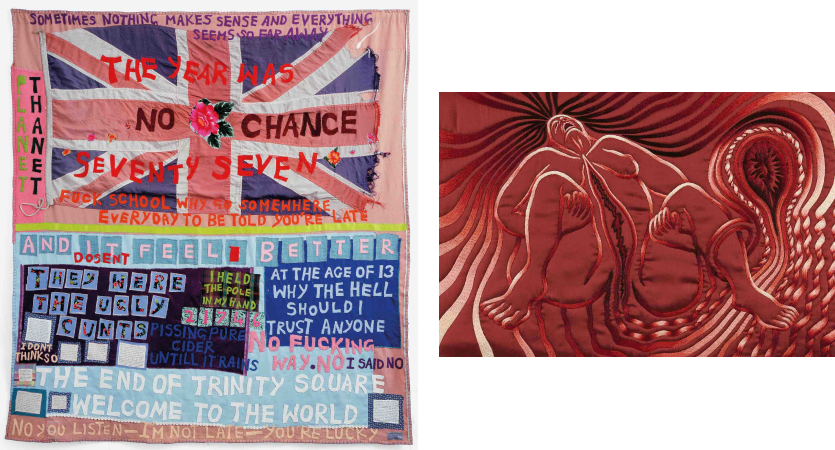
Unravel - The Power and Politics of Textiles in Art is organized by the Stedelijk Museum Amsterdam and the Barbican, London. Curated by Amanda Pinatih (Stedelijk) and Lotte Johnson and Well Fray-Smith (Barbican).
The exhibition in Amsterdam is generously supported by the Cultuurfonds, and the Zabawas Foundation.


